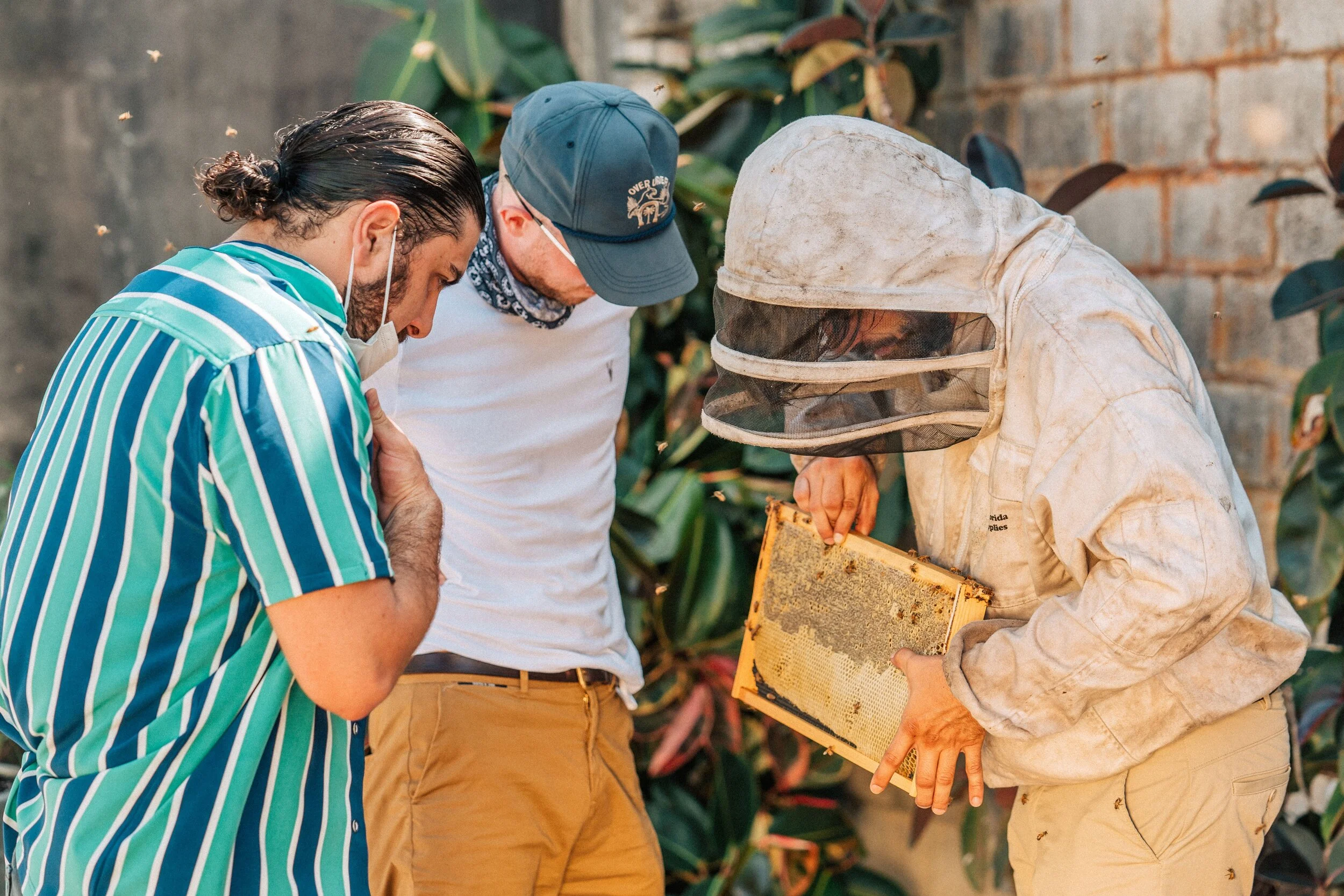LA Beekeeper Ruth Askren Teams Up With Bartenders To Support Honey Bees
Over the last decade, 1 in 3 managed honeybee colonies have been lost each year as a result of stressors like pests, pathogens, pesticides and poor nutrition due in part to habitat loss. Although dedicated beekeepers have been able to stabilize the U.S. honeybee population by splitting healthy colonies to make up for the continued losses, mortality rates remain high. In order to keep the U.S. honeybee population stable, it is crucial that everyone does their part in giving back to the bees and the professionals who care for them.
Courtesy Photo
ABERFELDY Single Malt Scotch Whisky, the whisky known around the world as the ‘Golden Dram,’ launched its ‘Gardening Giveback Project’ on National Honey Bee Day (Aug. 15) in collaboration with Bee Informed Partnership (BIP), a national, non-profit organization dedicated to working with beekeepers across the country to improve honey bee colony health and increase colony survivorship. Through the Gardening Giveback Project, ABERFELDY and BIP are empowering beekeepers and bartenders across eight cities in the United States to plant and maintain community garden-style bee sanctuaries by growing flowers, herbs and vegetables in dual purpose.
Identify LA got the chance to speak with Ruth Askren on the importance of bees (SPOILER ALERT: it’s about more than the honey), what we can do differently, and her involvement with the Gardening Giveback Project.
Identify LA: Why did you decide to become a beekeeper?
The LA Beekeeper Herself, Ruth Askren! Courtesy Photo
Ruth Askren: Back in 2009 I was trying to find a project to do with my elderly dad. He was sitting around a lot and getting bored. So, I checked out the idea of getting a beehive and joined the nearest beekeeping club. This club was very involved in removing honeybee hive infestations, which there are a LOT of in Los Angeles! We went out on regular bee-removal excursions, and of course I kept the bees I removed at my dad's! Pretty soon the removal clients were asking me if I could keep the bees on their property for them, and soon I had a few bee-maintenance clients. I set their beehives up, checked on their apiaries every couple of weeks, and harvested and extracted honey for the owners. In the beginning it was just a few hives but now I have 30 clients and I run over 100 hives. I no longer do removals! My business, The Hive Tribe, creates and services privately owned bee-yards all over LA County and up to the Ventura County line along the coast.
@hivetribebees
IDLA: Biggest misconception about bees?
RA: The reason bees are such a big part of our economy is not because of honey, it is because of the essential work of pollination they do. Although backyard beekeepers are obsessed with their honey crop, in commercial agriculture beekeepers can pay their mortgages because of the pollination contracts they get for almonds, oranges, berries, and avocadoes to name a few. Honey ends up being something they are pressed to offload, and that is a big reason that the wholesale price of their honey is so low (~$3/lb).
Courtesy Photo
IDLA: Are honeybees endangered? If so, what can we do to assist?
RA: Honeybees are not endangered because they are livestock, like goats, chickens and cows, none of which would humans ever allow to disappear because they are so important to our food supply. If honeybees were listed under the Endangered Species Act you wouldn’t be able to capture them, sell them, harvest their honey, or use them in agriculture.
There are about 20,000 OTHER species of bees on the Earth, and 7 of them were recently listed as endangered (all solitary bees that live in wilderness habitats). The greatest threats to these species are habitat loss from human encroachment, and climate change, causing them to lose their food sources. The best way we can assist them is to get on board with curbing our energy appetites so that we use less petroleum products and stop the heating of the planet. Of course, planting for bees is a great way to support their populations, and there are many flowering trees and herbs that people can plant to feed them. The other thing we can do is to leave some areas of our gardens untilled and unplanted so that the solitary native bees can build their nests in holes in the ground without human disturbance.
Courtesy Photo
IDLA: Can you tell us about your involvement, and why you decided to get involved, with the Gardening Giveback Project?
RA: I have always been involved in education projects of various kinds, and I was pleased to be invited to work with these local bartenders who were excited to learn more about bees and honey. The four bartenders who came to my bee yards were enthusiastic and willingly put their suits on, lit the smoker and got their hands dirty when it was time to work! The bonus for me was that in addition to adding their energy, questions and curiosity to our beekeeping sessions, they also planted a dozen beautiful herb plants in my backyard garden! The sage, basil, chamomile and spearmint will bloom in a few weeks and provide much needed nectar for the bees in the winter months. I've enjoyed working with them and hope to soon meet with them at their bars when we can share a dram face-to-face!










